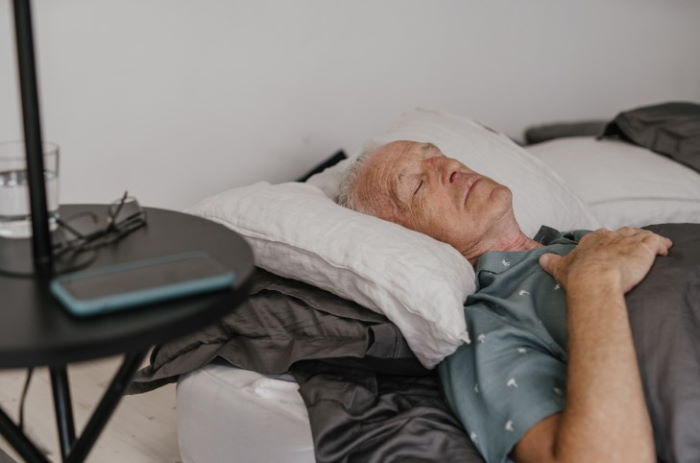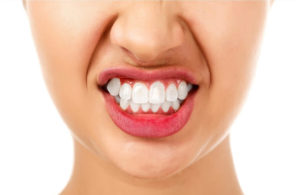If you find yourself asking questions like “why do I snore so loudly?” then you are on the right track. That means you recognize that you snore in your sleep, which is the first step in addressing this serious problem. Snoring could be a sign of a potentially dangerous underlying health condition. The tricky thing about it is since episodes of apnea happen during sleep, most people who snore don’t know they snore. However, the person they share the bed with, or even the people they live in their house with, know about the problem, especially if it’s loud. But what causes someone to snore so loudly in the first place?
Understanding snoring
The key to answering the question lies in understanding the anatomy and physiology of snoring.
Snoring happens when the tissues in the upper airways, including the tongue and soft palate, relax too much and collapse, leading to narrowing or blockage in the airway. When the air coming in and out of the airway meets resistance, vibration can take place in the airway, resulting in snoring. Although it may seem like there’s a bullhorn attached to the snorer, snoring is basically the interaction between air and tissues. It’s a pretty common issue that affects most people at some point in their lives.
Snoring is often linked with a sleep disorder called obstructive sleep apnea (OSA). While not all who snore have OSA, if snoring comes with the following symptoms, it may be an indication to seek further medical evaluation:
- Morning headaches
- Sore throat upon awakening
- Feeling restless even after a whole night of sleep
- Sluggishness and excessive daytime sleepiness
- Wheezing and pauses in breathing during sleep
- Choking or gasping for air at night
- Difficulty concentrating
- Chest pain
- High blood pressure
- Loud snoring that disrupts others
In children, poor attention span, behavioral issues, poor performance in school.
OSA is characterized by loud snoring, followed by a few seconds of silence when the breathing stops (or nearly stops). This pattern is disruptive to the brain and body, as there will be not enough oxygen going through the body. The brain will save itself and send signals to trigger breathing. This causes the sleeper to jolt and gasp for air as they wake up. This process happens multiple times a night, causing disrupted sleep.
What causes someone to snore so loudly?
Again, snoring is a pretty common condition. But why do some people snore significantly more loudly than others? Here are a few reasons why people snore so loudly:
Age
As you age, the muscles that make up your airways become less elastic and soft. This causes snores to be longer and louder. And this is why older people are more likely to snore louder than younger people.
Moreover, younger women are less likely to snore than men. At post-menopausal age, however, women are as likely to snore as men. This is due to the hormonal changes that happen in a woman’s body during menopause. Doctors often prescribe hormonal therapy to post-menopausal women to improve snoring.
Sleeping position
Some sleeping positions aggravate snoring. Lying on your back, for example, makes the soft palate and base of your tongue collapse all the way back to the wall of the throat. This causes the sound you make while you breathe to vibrate around the airways.
Alternatively, sleeping on your side is considered the best position to minimize, or even prevent snoring. Elevating your head with a special pillow or lying in a reclined position opens up your air passage to help you breathe normally as you sleep, though this can result in neck pain.
Blocked nasal passages
Some snorers snore through their noses. This is because their nostrils are blocked due to a deviated septum or some physical obstruction in their nasal passage that may be blocking their airway, which leads to nasal snoring. It can be caused by allergies due to allergens in the air, weather, etc., colds, or using certain types of medication.
A hot shower before going to bed can help open the nasal passages. A good way to open up the air passage even more is to rinse your nose with a bottle of saltwater while showering. Similarly, rinsing your nasal passage with a neti pot using a salt-water solution can provide quick relief.
Obstructive Sleep Apnea
Snoring caused by OSA is the loudest of all forms of snoring. OSA happens when a person’s breathing stops several times in the night during sleep. The muscles and soft tissues in the throat become too relaxed, causing them to collapse and block the airway. This is common among overweight and obese individuals since they have more fat storage around the neck area.
Moreover, snoring caused by OSA is also the most dangerous. It is often linked to serious health conditions such as arterial hypertension, metabolic syndrome, diabetes, cardiovascular disease, and strokes if left untreated. And since it compromises sleep quality, it can also affect one’s mental and emotional health, which leads to anxiety, suicidal thoughts, and even depression.
Hereditary
Loud snoring is often hereditary. Some people are simply built with thicker necks with a low and thick soft palate which narrows the airways. The narrower the airway, the more forceful the airflow becomes, the stronger the vibration, the louder the snore.
Bad habits
Loud snoring is common among people who drink and smoke before bedtime. Alcohol relaxes the muscles, and that includes the throat muscles. As a result, this decreases the body’s natural defense against obstructions in the airways.
Misaligned jaw
Trauma due to injury or conditions like temporomandibular joint disorder (TMJ) has a direct correlation to the occurrence and volume of snoring. This is because a misaligned jaw can significantly affect the position of the tongue. During sleep, the tongue can fall back and block the throat, which leads to snoring.
Fortunately, there are many ways to fix jaw misalignments, such as braces, teeth removal, use of veneers, headgear braces, malocclusion treatments, upper jaw expanders, and jaw surgery.
As said earlier, snoring is pretty common, but that doesn’t mean you should ignore it. Loud snoring can be a sign of a serious underlying medical condition. Thus, the best thing you can do is to visit your physician or sleep doctor for help.


























